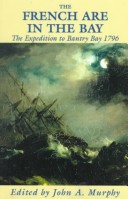This work deals with the events of 1796, and explores the perennial question of Irish Republicanism, with particular reference to Wolfe Tone and the United Irishmen. It also explores the various facets of the historical and political background in Europe, the military, naval and demographic aspects of the expedition itself and its political destiny, as well as the impact on the popular consciousness, and the literary and folklore traditions which ensued. Revolutionary ferment was in the air in the 1790s. The United Irishmen aspired to put an end to traditional sectarian antagonism, to establish a brotherhood of all Irishmen based on equality and the "Rights of Man", and to "break the connection with England". Their inspiration was the French Revolution, "the morning star of liberty", as Wolfe Tone described it. The fleet that set sail from Brest on 15 December 1796 was a formidable one, about 50 vessels in all, with 15,000 soldiers and supplies and ammunition. The French Armada was dogged by misfortune from the outset.
By the time the ships reached Bantry Bay strong easterly winds developed into blizzards and gales, which not only made a landing impossible but scattered the fleet so badly that by 27 December the ships were sailing back to France. Contributors include Hugh Gough, Tom Dunne, John Tyrell, David Dickson, Tom Bartlett, Kevin Whelan, Gearoid O Crualaoich, Nicholas Carolan, Kevin Hourihan and Sean O Coileain.
- ISBN10 1856351718
- ISBN13 9781856351713
- Publish Date April 1997
- Publish Status Out of Print
- Out of Print 9 July 2008
- Publish Country IE
- Imprint The Mercier Press Ltd
- Format Paperback (B-Format (198x129 mm))
- Pages 160
- Language English
